detail profile beata tyszkiewicz
Peran Yang Di Mainkan Beata Tyszkiewicz
 A romantic comedy set on Christmas...
A romantic comedy set on Christmas...Letters to Santa 2011
A romantic comedy set on Christmas Eve in Warsaw and centered around a series of characters.
 The story follows a young scientist...
The story follows a young scientist...King Size 1988
The story follows a young scientist in the contemporary world, who actually came from the world of dwarves, thanks to a magic potion, held by the Big Eater, ruler of the dwarves. The dwarf kingdom, Shuflandia, exists in a cellar of a library, and only the most obedient get the chance to grow to king size and inhabit the larger world. Once there, nobody wants to return to Shuflandia. Also, there are no women in Shuflandia.
 Two scientists are chosen as guinea...
Two scientists are chosen as guinea...Sexmission 1984
Two scientists are chosen as guinea pigs for a time experiment: they are placed in hibernation and should be brought back to life after three years. In the meantime, however, World War III breaks out and life has been wiped off the surface of Earth. When they wake up, it turns out that not only 50 years have passed but also that they are the only living specimens of the male sex in a new, underground society composed exclusively of women.
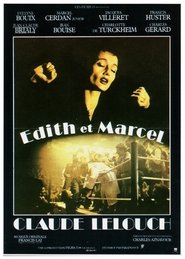 This tragic musical drama chronicles the...
This tragic musical drama chronicles the...Edith and Marcel 1983
This tragic musical drama chronicles the star-crossed love between beloved French singer Edith Piaf and World Middleweight boxing champion Marcel Cerdan who died in a plane crash. The tumultuous affair is paralleled by the love affair of a French POW and his young pen pal who get engaged after writing to each other for four years and having never met. Their romances are framed by the sad, torchy songs of Piaf.
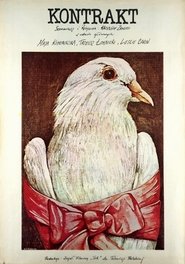 Bearing traces of the old Anton...
Bearing traces of the old Anton...The Contract 1982
Bearing traces of the old Anton Chekhov play The Wedding, The Contract is set during an "arranged" ceremony. The bride and groom barely know each other, but this matters not at all to their tradition-bound families. At the last minute, the bride balks. Only slightly nonplused, the groom's father, a status-seeking doctor, decides to go ahead with the expensive reception anyway. Polish director Krzysz Zanussi uses this scenario to stick it to capitalist corruption, and to society's destruction of the individual spirit. Leslie Caron, the one recognizable member of the cast, is outstanding as a wealthy, over-the-hill ballerina who happens to be a kleptomaniac.
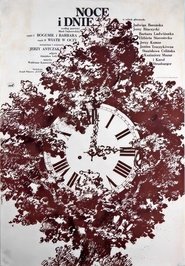 A family saga of Barbara OstrzeskaNiechcic...
A family saga of Barbara OstrzeskaNiechcic...Nights and Days 1975
A family saga of Barbara Ostrzeńska-Niechcic and Bogumił Niechcic against the backdrop of the January Uprising of 1863 and World War I. The film is a rather straightforward and faithful adaptation of a novel by Maria Dabrowska with the same title. The plot is woven around the changing fortunes of a noble (upper-class) Niechcic family in the pre-WWI Poland. There are two main crossing threads: a social history one and an existential one.
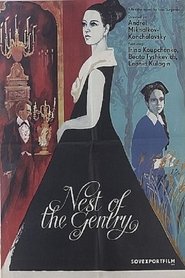 A screen adaptation of the novel...
A screen adaptation of the novel...A Nest of Gentry 1969
A screen adaptation of the novel of the same name by Russian writer Ivan Turgenev. The film portrays the life of Russian landed gentry in the 1840s. After a long travel in Europe, nobleman Lavretsky returns back home. Everything in his estate is so familiar and dear to his heart. On his first visit to his neighbors, the Kalitins, he meets Lisa. He forgets his wife, left in Paris, forgets all his past. He desires only one thing – to always be with Lisa who is so unlike the women he used to know.
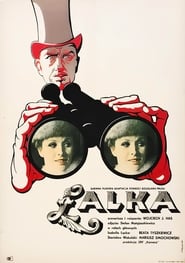 Set in the 19th century Warsaw...
Set in the 19th century Warsaw...The Doll 1968
Set in the 19th century Warsaw. The indolence of aristocrats who, secure with their pensions, are too lazy to undertake new business risks, frustrates Wokulski. His ability to make money is respected but his lack of family and social rank is condescended to. Because of his "help" (in secret) to "the doll's" impecunious but influential father, the girl becomes aware of his affection.
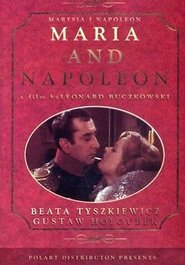 In 1807 Napoleon meets and falls in...
In 1807 Napoleon meets and falls in...Maria and Napoleon 1966
In 1807, Napoleon meets and falls in love with 22-year-old Polish countess Marie Walewska, who is unhappily married to a much older man. Enchanted by the blonde, blue-eyed countess, the emperor enters into an affair with Marie, who uses the relationship to induce Napoleon to treat Poland fairly.
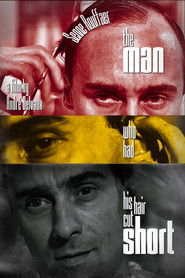 Govert Miereveld is a lawyer from...
Govert Miereveld is a lawyer from...The Man Who Had His Hair Cut Short 1966
Govert Miereveld is a lawyer from a small Flemish town who also teaches in a school for girls. He harbors a secret love for one of his young students, Fran, whom he loses touch with after her graduation. Some time later, Miereveld has to attend an autopsy, and the shock of the experience deeply affects his mental balance. He finds out - or he believes so - that Fran has become a popular singer. He arranges to meet her to finally reveal his feelings. An ambiguous but perhaps tragic denouement follows which might be a figment of the protagonist's disturbed mind.
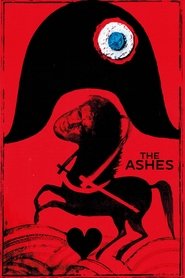 Set in the time of Napoleon...
Set in the time of Napoleon...The Ashes 1965
Set in the time of Napoleon wars, shows how the wars swept over the unfortunate Polish country at the beginning of the XIX-th century. Story revolves around the Polish legion under command of General Dabrowski, who then fought on Napoleon's side with the hopes of Poland's revival.
 The hero is a Jewish youth...
The hero is a Jewish youth...Samson 1961
The hero is a Jewish youth. He, like his family, has always been silent and undemonstrative in the face of prejudice. Now he stands up for his right to survive, and in so doing represents the fighting spirit that culminated in the Warsaw Uprising.
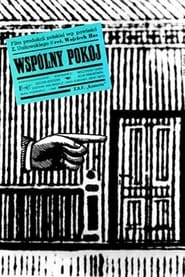 A subjective adaptation of a wellknown...
A subjective adaptation of a wellknown...One Room Tenants 1960
A subjective adaptation of a well-known autobiographical novel by Zbigniew Unilowski (screenplay by Wojciech Jerzy Has with dialogues by Stanislaw Dygat). The adventures of the tenants of a sublet room in a Warsaw townhouse inhabited mostly by students and novice writers, presented against the social context of the 1930s.

 The movie is set in Belarus...
The movie is set in Belarus... An unknown Polish writer cant publish...
An unknown Polish writer cant publish... A young writer in 1939 Warsaw faces...
A young writer in 1939 Warsaw faces... A young woman runs away from...
A young woman runs away from...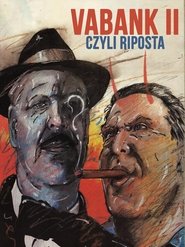 A sequel to Vabank 1981 introduces the...
A sequel to Vabank 1981 introduces the... Wajdas homage to Zbigniew Cybulski the...
Wajdas homage to Zbigniew Cybulski the...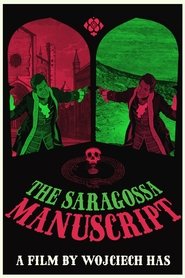 During the Napoleonic wars a Spanish...
During the Napoleonic wars a Spanish...